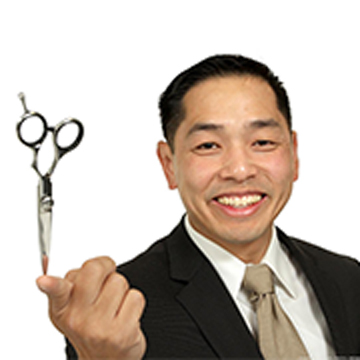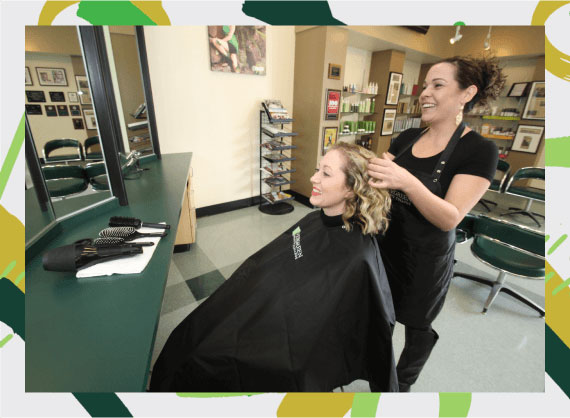Master Esthetic in Bellevue – No Such Thing as a Medical Esthetician
I am about to head down to Olympia for the Department of Licensing Quarterly meeting this morning. The department will be completing the reading of the proposed rules tomorrow, which includes the Master Esthetics License , and I am going to see if there has been any substantial changes in the these final hours.
As we navigate through the rule making process, I am beginning to realize how many things get changed at the final moments. These final changes are sometimes inserted with the intent of solving a problem, while other times, about trying to ‘slide things in.’
This Master Esthetic License is an important change for our state and also for our industry. A couple years ago, Suzanne Warfield wrote an article titled “There is No Such Thing as a “Medical Esthetician License.” It’s well worth a read because this ‘new license’ has often been referred to as a Medical Esthetic License, which it is technically not. However I think this is the intent.
Now Estheticians will need to make a decision; do they want to work in a medical setting or have the option to? I would invite you to share your comments below on this blog 🙂
 There is No Such Thing as a “Medical Esthetician License”
There is No Such Thing as a “Medical Esthetician License”
Susanne S. Warfield is the leading expert on the business, legal and liability issues that affect physician and esthetician relationships working in a medical or spa setting. Warfield is a 27-year Licensed Esthetician and is NCEA Certified. Her career started as an Esthetics Instructor at Sheridan College in Oakville, Ontario, Canada, where she taught thttp://www.ncea.tv/he 2nd year of a two-year degree Esthetics Program. When she moved to the United States, her advanced training was put into use and she spent almost 14 years working with a dermatologist in New York City. See Susanne S. Warfield’s profile on the Beauty School Lounge.
As you do your research looking at the field of medical esthetics, you are probably seeing ads for medical esthetic, paramedical and become a medical esthetician. Esthetician training and esthetician licensing varies from state to state, and at the time of this article there was no such license for any of the aforementioned terms. The average number of hours of esthetician licensing training on a national basis is 600. The separation of the esthetician license from the standard cosmetology or hairdressing license has allowed some schools to become licensed to teach only skin care, thereby raising their hours and standards. There currently are only two states – Utah and Virginia – that offer a two-tier Esthetician Masters program for 1200 hours. There are several more states that are in the process of updating their statutes – which is sorely needed – but more on that in another article.
From the National Coalition of Estheticians, Manufacturers/Distributors & Associations, Use of Esthetician Titles. It is the position of the NCEA that estheticians represent themselves according to their licensed title, as designated by their state licensing board or regulatory agency, and that estheticians must not promote themselves or allow any employer to market them otherwise.
Esthetician Medical Training Certifications
There are several companies, schools, and associations that offer “certifications” to estheticians upon completion of a course. These courses may have required participation time ranging from minutes to hours to days.
Some courses are teaching advanced procedures using machines and products that are well beyond what the esthetician license and scope of practice allows. Therefore, obtaining liability coverage would then become a major priority for the esthetician practicing. However, in a dermatology setting, it would be up to the physician and their risk manager if the esthetician should be permitted to perform these advanced procedures, under the direct supervision of the physician of course.
This Isn’t General Hospital – It’s the Real Thing
One of the most important factors in deciding whether to work in a medical setting is: Do you like medicine? Specifically, are you comfortable dealing with illness and medical problems on a daily basis? Not that the fields you’re likely to choose will bring you into contact with a great deal of sick people, but your clients will all be patients and all of them will have a medical or aesthetic concern.
While dermatology and plastic surgery, the esthetics areas you will most likely fill in the medical setting, generally involve less serious medical problems, they’re still not for the squeamish. Plastic surgery, after all, is still surgery. And some plastic surgeons perform reconstructive surgery to repair the trauma of accidents or the disfigurement of diseases such as cancer, burn survivors or genetic defects. And dermatologists treat skin cancer various, sometimes disfiguring rashes and infections as well as various diseases that affect the skin.
If you cannot stand the sight of blood or if you find illness or disfigurement overwhelming, then you probably should consider
working as an esthetician in a medical setting other than a clinical setting. On the other hand, most of us can get used to the sights and the situations that are likely to come up in dermatology or plastic surgery, and if you enjoy helping others and if you appreciate the privilege of working intimately with people who depend on you, the rewards of working as an esthetician in a medical setting can be tremendous.
One area that I haven’t touched on at all is the medical spa environment. If I had 10 people in the room and asked them what their perception of a medical esthetician is, I would probably get 10 different answers. For purposes of this article, the NCEA position on a medical spa is:
A medical spa is a facility that during all hours of business shall operate under the on-site supervision of a licensed health care professional operating within their scope of practice, with a staff that operates within their scope of practice as defined by their individual licensing board, if licensure is required. The facility may offer traditional, complementary, and alternative health practices and treatments in a spa-like setting.
Working in this type of facility may take you in several different directions depending on the philosophy of the owner, supervising physician and the corporate vision of what a medical spa is.
Schedule an appointment to tour our campus and meet and speak with our instructors.





I really appreciate your writing to date. I am a Registered Nurse and have my license in Esthetics, I am shocked at the fact that many people are practicing and have little medical knowledge.
Thank you so much Christina!
Thank you for this article. It provides information how to obtain certification for a medical spa and effectively implement acquired knowledge.